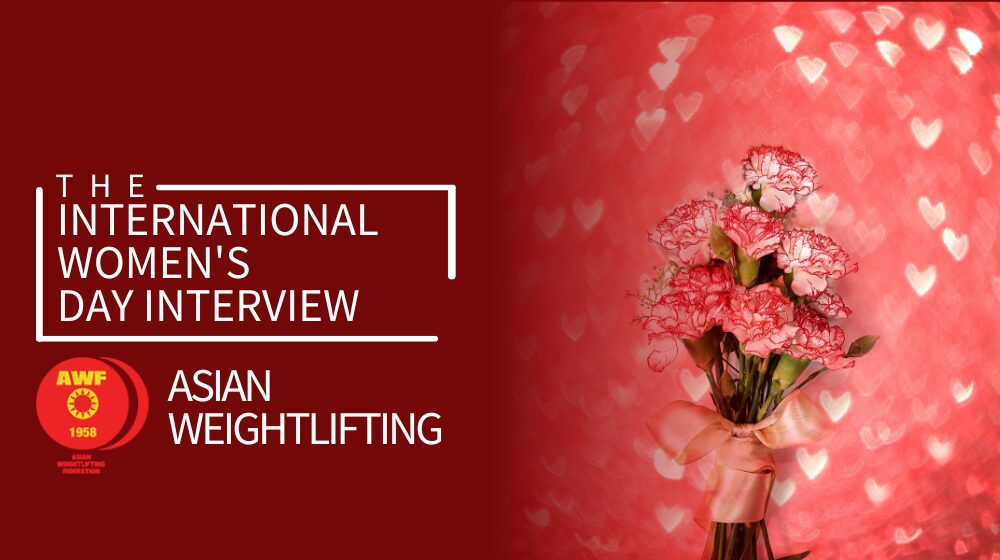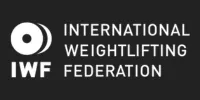Welcome to our celebration of International Women’s Day, where we shine a spotlight on the incredible women who are not just part of the weightlifting world, but who are actively transforming it. Through a series of heartfelt interviews, we’ll dive into the lives, struggles, and victories of those who have made the weightlifting platform their domain. From breaking records to breaking stereotypes, these women share one common thread: an unyielding determination to push boundaries, both in the gym and in society. Their stories are not just about the sport; they’re about passion, resilience, and the relentless pursuit of greatness.
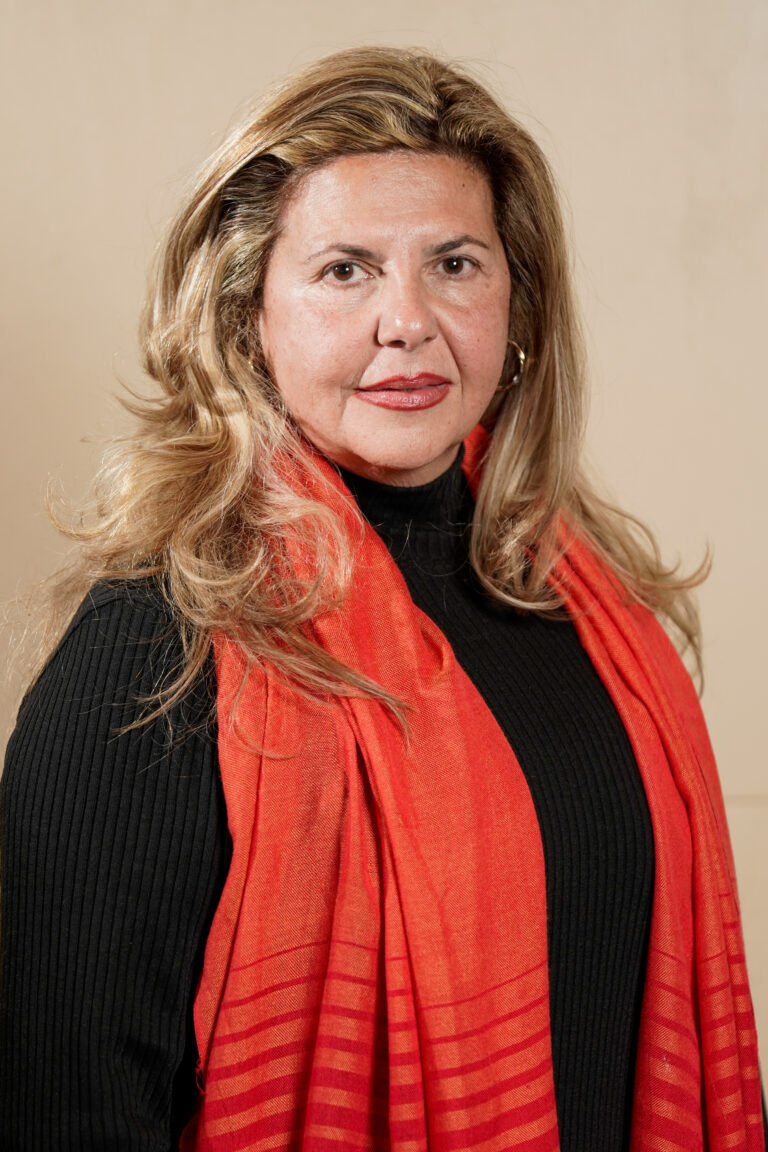
We are starting our interview with an insightful conversation with Dr. Seza Tchobanian, the esteemed Chairperson of the Asian Weightlifting Federation’s Medical Committee.
As someone deeply involved in the health of athletes, what unique challenges do female weightlifters face, and how can they be addressed?
One of the most profound challenges of a female lifter is hormonal fluctuation and its effect on their performance, which includes strength/flexibility, mood/affect, energy level, and weight alterations. Thus it is important to map the menstrual cycle and develop a training program that corresponds to the hormonal changes. The musculoskeletal system is flexible or stiff according to certain hormone levels, thus training should adjust accordingly. Second mood and energy levels can be addressed by introducing vitamins and minerals, as well as a positive environment. Third, management of nutrition is mandatory to avert excess weight gain during the cycle (this is especially critical during championships).
Another challenge for female weightlifters is postpartum return to play. After the lifter has completely recovered and the hormonal levels have stabilized, she must adhere to specific training and nutritional programs, where the weight loss is monitored, and the training periodization is adjusted to their capacity. In summary the lifters need proper training/coaching, good nutrition, and psychological support to compete at their optimum level with minimal chance of injury.
Could you highlight some of the key initiatives the Medical Committee has launched to tackle health challenges specific to female weightlifters?
Our medical committee is conducting a research study in collaboration with the coaches and female lifters, where they will be required to record their daily performance ( like a journal) in correspondence to their menstrual cycle. This will be shared with research and coaching committee to develop a guideline for training.
In terms of medical support, what advancements are you hoping to see in the next decade for women in weightlifting?
I would like to see the development of a training program specific for adolescent female lifters, (it’s the time of pivotal transition to youth, then junior and finally senior women). This is the time when the foundation of technique, discipline, and mental strength is laid which helps to prevent injuries.
Can you share a success story or a major learning moment from your tenure as Medical Committee Chairperson?
Yes, there were a few. One was an athlete who suffered an avulsive fracture in the elbow, another one tore his hamstring muscle, and another sustained a spinal injury. They overcame their injuries and went on to compete and some were able to win medals. It’s crucial the coach and athlete trust and have confidence in the doctor, so he/she would be able to manage and treat effectively. This is very evident, especially in catastrophic injuries.
What key strategies would you recommend for female weightlifters to incorporate into their routines to prevent injuries and support their long-term health?
The most important strategy is for the athlete to adhere to the training regimen, however, if she doesn’t feel confident, she must address her concern to her coach and trainer, so they can adjust the program. I must note here warm up before training the session is vital, however cooling down and stretching is more crucial because it lets the muscles and ligaments come slowly to a normal state. If it takes you 20 minutes to warm up then you need 45 minutes to cool down to prevent injuries. Second, when the athlete is going up or down a category, the weight changes will directly influence her speed and strength (hence capacity), therefore must adjust her training regimen, and the weight gain or loss must be managed progressively. I must make an important point here, the lifter will attempt to lose weight very rapidly via starvation and dehydration to qualify for a weight category, but this will backfire. Her strength/stamina will diminish, she won’t be able to concentrate, and she will be more prone to injury.
Continuing our celebration of International Women’s Day, we now turn the spotlight to Ms. Reiko Kato Chinen, AWF Technical Committee Member from Japan.
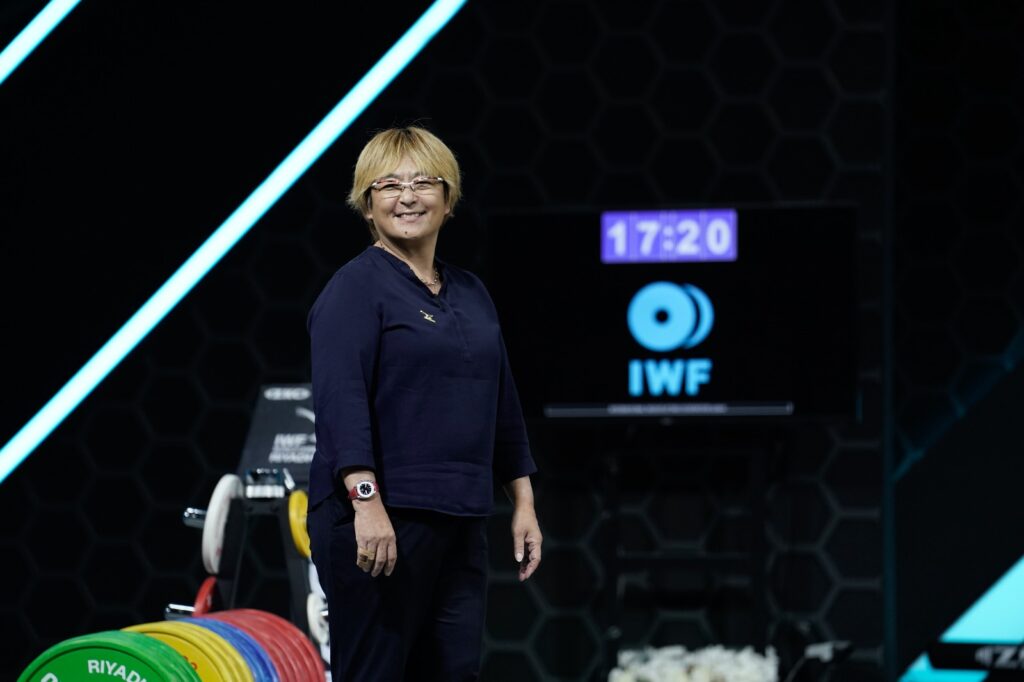
From your perspective, what has been the most impactful initiative to promote women’s participation in weightlifting in Japan?
“The first generation” was grown up after the IWF opened the door for women in 1983. Japan participated in the 1st Women’s World Championships in 1987. Since that, Japan regularly delegated female lifters to various events. Recently, our nation has had talented young athletes both men and women and many of them are children of mothers and/or fathers of “the 1st generation”.
As a Technical Committee member, how do you balance tradition and innovation to evolve the sport for women athletes and officials?
It has been already tradition though, I think the innovation of outfit rules which started to allow wearing unitards that unitard not necessarily tight fitting opened the door widely for Muslima athletes. Also, the rule which allows wearing jewelry or accessories during the weigh-in keeps female athletes beautiful just before the competition. I like those rules. To be innovative, a unique sports presentation is required, which is not only for female athletes but for both genders.
Looking towards the future, what major changes do you anticipate or advocate for in women’s weightlifting?
Women are very emotional. And showing their emotion especially after the good life is beautiful. Currently releasing the barbell above the shoulder is a part of incorrect movements. Some athletes after achieving excellent results were penalized just because they became super happy and released the barbell above the shoulder. Why not modify this rule? For me, it is OK if the athletes release the barbell above the head if they lower it in front of the body.
What challenges do you face in your role, and how do they differ from those faced by your male counterparts?
There is no big difference in privilege of weightlifting in Japan. Rather in general conditions, Japan has gender disparrities such in salary, position in companies. We have been told that Japan is 125th among 146 nations in 2023.
How can global weightlifting communities better support one another in advancing gender equality within the sport?
(1) Further rule amendments should be made to reduce religious restrictions if they exist. (2) Other than financial training or participation support, education support for young female athletes (such as scholarships, and a studying abroad system) will leave a long-term legacy.
Our International Women’s Day series continues with an inspiring dialogue with Sabina Yadav, president of UP State weightlifting Association and ITO.
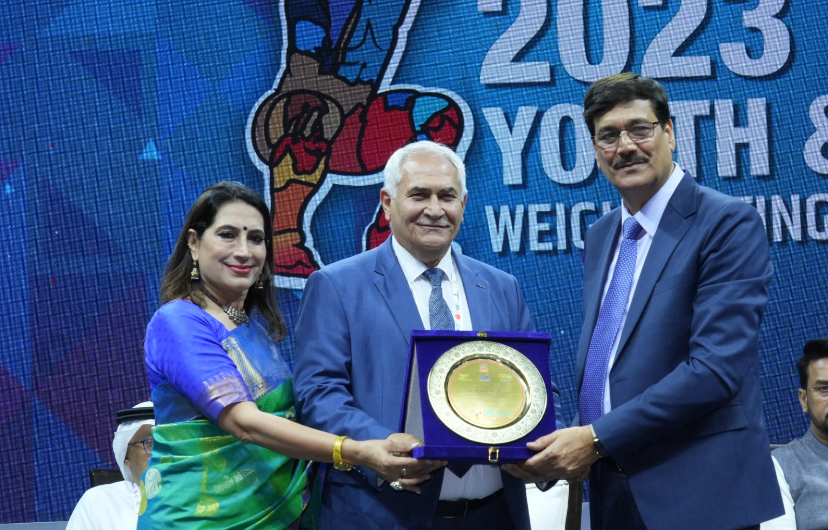
Reflecting on your experiences with young athletes, how do you think weightlifting can play a role in shaping a young woman’s perspective on health and strength?
Over the years there has been significant progress in the support and recognition of female athletes. In my opinion, weightlifting or any other sport empowers women by promoting physical fitness self-confidence, and leadership skills. It promotes health and well-being and reduces the risk of chronic diseases. It also serves as a platform for advocating gender equality.
Considering your work at last year’s Commonwealth and Asian Youth and Junior Championships, what progress have you observed in the support and recognition of female athletes?
The Championships India got an opportunity to host last year have highlighted the talent and dedication of female weightlifters. It also helped them foster social connections and networks that benefitted them professionally and personally. We are so lucky that our honorable Prime Minister Sh Narender Modi ji is focusing a lot on women, especially in sports. He is giving them so many platforms to showcase their talent. Also, he has made 50-50 participation of men and women compulsory in all fields.
From a physician’s perspective, what unique contribution do you feel you bring to the table in advancing women’s health in the realm of competitive sports?
From a physician’s perspective, in my opinion, physicians can guide various nutritional plans, specialized medical guidance on how to prevent injury and maintain hormonal balance, and also take care of their physiological needs.
Can you share an inspiring story of resilience or triumph from a female athlete that has left a lasting impression on you?
For me, the story of our Indian weightlifter Mirabai Chanu is incredibly inspiring. She hails from a humble background in Manipur where she faced numerous challenges and financial constraints but with her dedication and hardworking she became an Olympic silver medalist in Tokyo Olympics 2020 bringing glory to her nation and family.
Mirabai’s success has inspired countless individuals, especially young girls and aspiring athletes, to pursue their dreams fearlessly and overcome obstacles with determination and resilience. Her story serves as a source of motivation and hope for anyone striving to achieve their goals, regardless of their background .As a woman athlete from a marginalized community, Mirabai Chanu’s achievements represent a significant milestone for gender equality and empowerment in sports. Her success breaks stereotypes and demonstrates that with hard work, determination, and support, anyone can reach the pinnacle of success in their chosen field.
Looking ahead, what is one change you passionately advocate for in the health management of female weightlifters to ensure they can perform at their best while maintaining overall well-being?
Women should be fit mentally and physically to give their best performance. We should try to provide access to specialized medical care, nutritional support education on various health issues, personalized training, and various nutritional plans. Also taking care of their physiological needs is important so that they thrive their best on and off the platform.
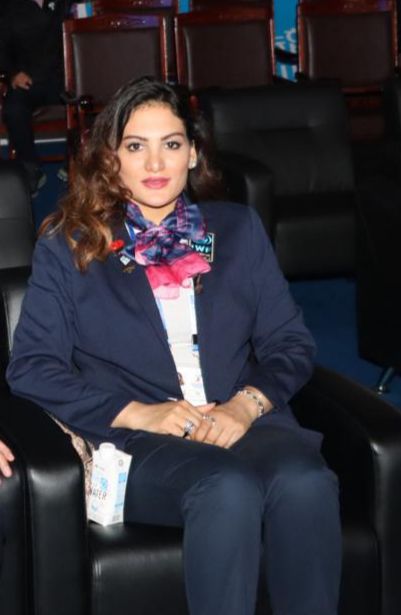
Moving forward in our International Women’s Day series, we have the pleasure of featuring Naylah Almeer, an esteemed Category 1 International Technical Official from Bahrain.
In the spirit of International Women’s Day, can you share a story from your career that highlights the empowerment of women through weightlifting?
I am very proud to have been part of the team that established women’s weightlifting since 2013 which we started by visiting schools to scout for talented individuals. This led to us being able to organize independent championships for women due to the increasing number of female participants and the growing interest in the sport.
In 2016, we hosted the Gulf Championship in Manama with the highest possible participation and won many medals. We also took the first place in the team results for women. After this success, we aspired to host the 2018 West Asia Championship, also held in Manama. We participated with a large number of players and won the first place for the junior and youth category. We also hosted the West Asia Clubs Championship in the same year as we were the only country with this number of talents, and they were crowned by the West Asia Federation.
After that, we participated in several international championships. For instance, player Zainab participated in the World Championship held in Greece in 2022, and Mariam Sharif, a team player, qualified for the Youth Olympics held in Buenos Aires in 2018 and achieved sixth place.
The 2024 IWF Championships in Manama represent a significant milestone for weightlifting. How do you envision this event furthering the cause of women’s sports in the region?
There is no doubt that the first edition of hosting the 2022 International Asian Championship left a positive mark on the Kingdom of Bahrain’s weightlifting sport. This highlighted many positive aspects, including tourism, sports, and the organization of hosting such a large number of players. This championship gained the International Federation’s trust and the world’s confidence in the Kingdom of Bahrain’s capabilities to host this sporting event and the considerable number of women participants.
From your vantage point, what breakthrough moment in recent years has significantly advanced the cause of women in the sport of weightlifting?
Amendments to the International Federation’s rules regarding attire worn by players have significantly contributed to increasing the number of female participants in weightlifting.
Additionally, Mr. Eshaq Ibrahim, President of the Federation, has a keen perspective on developing the female side, which he began by increasing the number of women on the Bahrain Weightlifting Federation board to three women. The federation also made sure to involve women in championships and international judging in local and foreign championships.
Can you describe a personal achievement within the federation that you feel has contributed significantly to the promotion of gender equality in weightlifting?
I am happy to have won the presidency of the Women’s Committee of the West Asia Federation. I am also proud that many women have been able to get their international referee licenses, proving their capability to practice and manage this Olympic sport. Moreover, my chairing of the Research and Scientific Committee in the Gulf Organizing Committee reinforces the equal opportunities between genders.
What innovative approach do you believe is necessary to foster a more inclusive environment for women in weightlifting, looking beyond the 2024 Championships?
The federation aims to develop the federation’s hall, acquire new tools, and incorporate Spartan Fitness gym as a sponsor with the federation which is one of the largest in the Kingdom of Bahrain and accommodates a large number of weight lifting practitioners. Mr. Eshaq, the federation’s president, has introduced a new and innovative approach to promoting cooperation with private halls to embrace practitioners of this Olympic sport and attract them as sponsors.
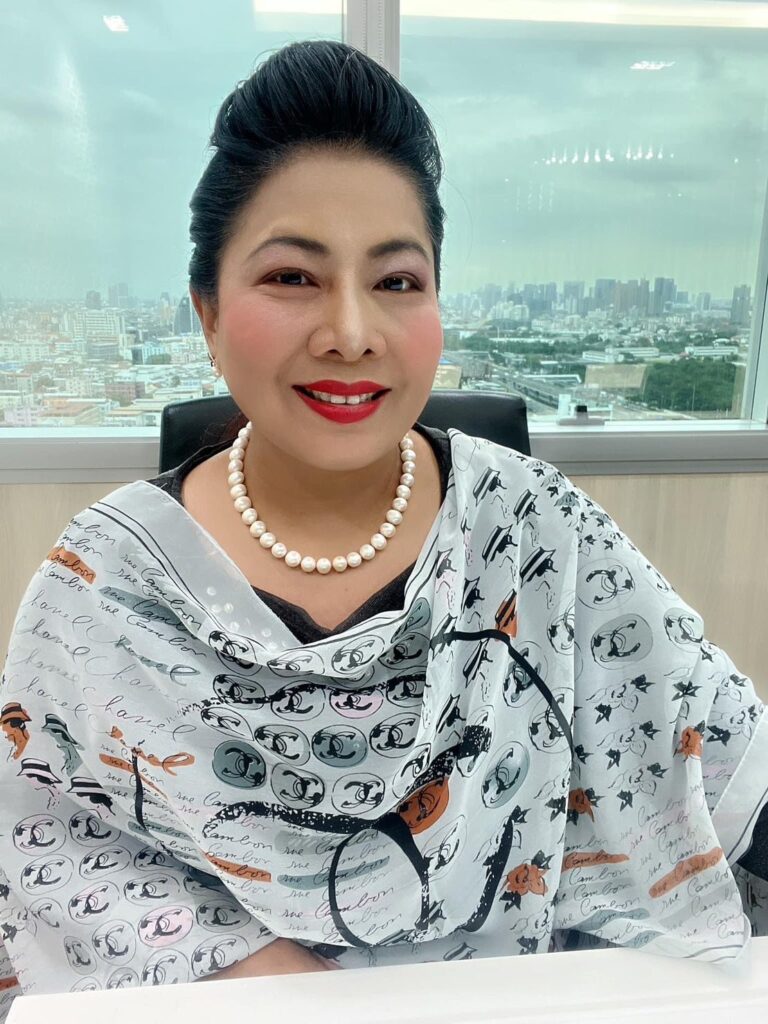
Next up, we’re thrilled to introduce Ms. Sirilak Thatman from Thailand, a distinguished member of the technical committee, our host for the upcoming IWF World Cup event in Thailand.
Hosting the IWF World Cup is a monumental task. What unique opportunities does this provide for promoting women’s weightlifting in Thailand?
Currently, Thai women are widely accepted in society at all levels. Thai women possess
comprehensive knowledge and abilities in various aspects, including leadership and
management. They are known for their sweetness, compassion, and hosting skills. The IWF World Cup 2024 provides an opportunity for Thai women to showcase their capabilities globally, reinforcing their role in weightlifting competitions. This pivotal role contributes to creating idols and instilling confidence in many Thai women, fostering belief in their knowledge and abilities through international sports organizations.
Can you share how the local weightlifting community in Thailand is supporting female
athletes in their journey to Paris 2024?
Thai people across all regions have a profound love for weightlifting. They consistently follow and encourage weightlifters and officials, providing unwavering support. This continuous assistance serves as motivation and contributes to the ongoing development of weightlifting, aiming for success in the Olympic Games Paris 2024.
What are the key factors in creating a successful and inclusive environment for female competitors at international events held in Thailand?
Athletes receive strong support from the Thai government, TAWA (Thai Amateur Weightlifting Association), and every Thai citizen, with a special emphasis on providing excellent care for female athletes consistently and equitably
How has the representation of Thai women in the sport changed in recent years, and what do you attribute this change to?
In the present, Thai women play a significant role on the global stage in various sports.
Over the past 2-3 years, many Thai women have become IOC members, administrators, officials, and referees at the international level. Factors contributing to the development of Thai women in sports include equal opportunities, gender equality, and acknowledgment of their capabilities by organizations like IOC, IWF, AWF, SEAWF, and TAWA. The distinctive qualities of Thai women, including intelligence, kindness, compassion, and confidence in their knowledge and abilities, contribute to their continuous role in sports development.
As the IWF World Cup in Thailand shines a spotlight on weightlifting, what message do you wish to convey about the global role in advancing women’s participation and recognition in the sport?
Women are valuable resources, promoting balance, beauty, and happiness. I believe
that Thai women possess knowledge and abilities. In the 2024 IWF World Cup in Phuket, Thailand, is another significant stage that opens opportunities for Thai women to showcase their abilities on the global stage. Let’s cheer and support both athletes and sports personnel from around the world who will be visiting Thailand in April”
As we draw our International Women’s Day series to a close, we are honored to conclude with insights from the esteemed Mr. Mohammed Ahmed Al Harbi, the General Secretary of the Asian Weightlifting Federation.
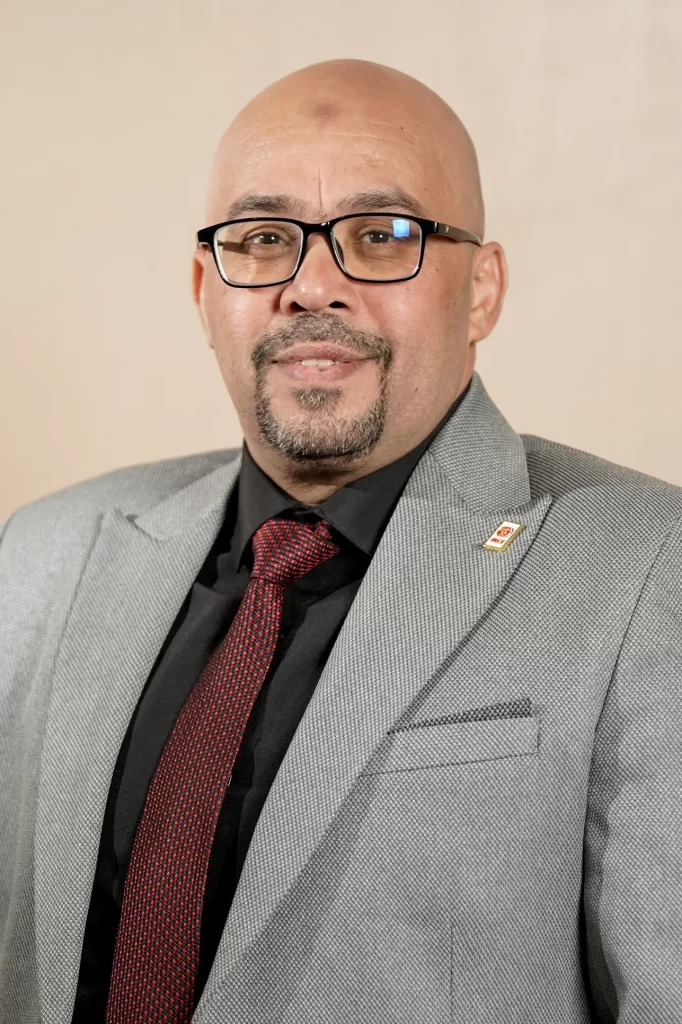
In marking International Women’s Day, we at the Asian Weightlifting Federation herald a new chapter, one where the valor and achievements of women not only illuminate their personal journeys but also kindle a broader transformation within our sport.
Their stories are not just narratives of victories and trials; they are the bedrock upon which we build a more inclusive future, one where equality is not an aspiration but a reality. Women across every spectrum of our sport – from the platform where records are shattered to the halls where decisions are made, from the coaching lines to the administrative desks – are the lifeblood of progress and the architects of change.
The road to this future is charted through our actions today—actions that go beyond the ceremonial and delve into the tangible strides we must take for equity and recognition. It is a commitment to turning the spotlight on the unsung heroines of weightlifting, to elevating the platform where their feats are not sidelined but are central to the identity of our federation. In unity, our federation moves forward, inspired by the trailblazers of yesterday and driven by the potential of tomorrow. Today, we honor the indomitable spirit of every woman in our community, pledging to support, celebrate, and elevate their contributions now and always.
Here’s to the women of weightlifting – the heart of our sport and the architects of its brightest future.


